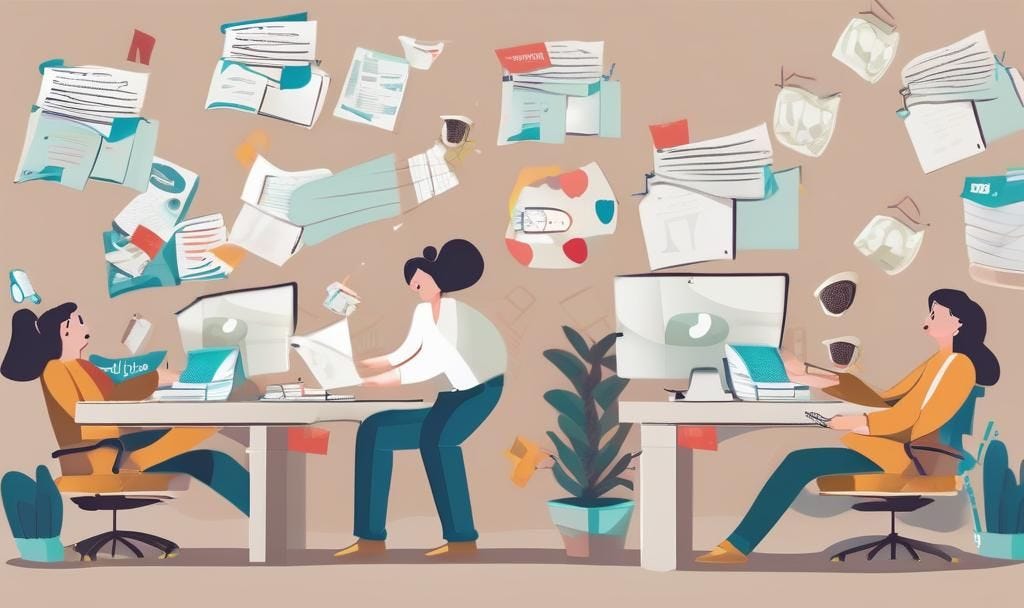Why using freelancers makes business sense
Take a chance on us
I am willing my banking app to ping a payment for a job months ago that was meant to open many lucrative doors. It was a great gig combining all my likes of writing and interviews and shooting and editing videos, but I over-delivered and undercharged because the people were lovely and the content interesting. Not to mention those damn doors being flung open.
So, here I am. Out of pocket and contemplating shut doors, never learning lessons and career choices. I have worked as a freelancer on and off for 18 years as a journalist, current affairs television producer, commissioning editor, researcher, subeditor, copy editor and content producer – longer than my time in full-time employment.
Is it worth it, I ask myself every time payment is late, briefs are vague, demands become ludicrous, deadlines crash, work dries up or clients ghost you.
And every time, the answer is: Hell, yes. Absolutely.
Every job is different. You have to up-skill and new-skill constantly in a self-taught, fly-by-your-pants kind of way, often last-minute. You have to be an expert in/on something you heard about two seconds ago. You have to get on with just about every personality. You must be tough and willing to do whatever it takes to get the job done. You are your own IT expert, transcriber, translator, PR, accountant, cleaner, researcher, and manager.
The same goes for flexibility. One day, you can have a front-row seat at fashion week. The next, you are compiling a speakers’ programme for a tech event, interviewing C-suite executives or sloshing through the mud for a magazine story on re-wilding.
The point is: What makes freelancing great, is precisely why you should use freelancers.
It makes business sense in the age of digital transformation, especially in tech, communications, marketing and content.
· Freelancers have networks. The thing is, they have to know people to survive.
· Freelancers know stuff because they have had to figure it out themselves.
· Freelancers work fast to get paid fast. (Ok, maybe the “paid fast” is a pipe dream. But they don’t get paid until the job is done, so you catch my drift.)
· Freelancers can multitask and have multiple skills.
· Freelancers think on their feet.
· Freelancers adapt to your needs.
· Freelancers want you to be happy so that you will give them more work. So, they will give you what you want.
· Freelancers disappear from sight after an event/content delivery (unless you don’t pay them). If a job didn’t work out, you’re not stuck with them.
· Freelancers can give you as little or as much you want: they can plan an entire event, design your social media strategy or write a single press release.
· Freelancers have experience across genres.
· Freelancers can fill in-house gaps.
· Freelancers are obviously cheaper as you don’t have to pay their pension, provide office space or plan around their annual leave. (Please note that I’m not advocating for exploitation but merely stating the obvious.)
It is a trend you should, at the very least, take notice of, if not embrace.
Already, the freelance services marketplace Fiverr estimates there are 1.1 billion freelancers worldwide, contributing up to $42.9 trillion to the world economy annually. (Now if only that payment came through, I could boost that by a thousand pounds.) And according to a report by Upwork, the number of freelancers in the US is expected to reach 90.1 million by 2028, representing 50.9% of the total US workforce.
Am I unashamedly punting myself and my colleagues at That Coalition? Yes, of course. It’s part of the freelance hustle, and I think my colleagues are professional, clever and excellent at what they do.
But this is also about thinking differently about the gig and creator economies from a hiring perspective.
We may just help you grow, bring you fresh ideas and solve a few problems.


